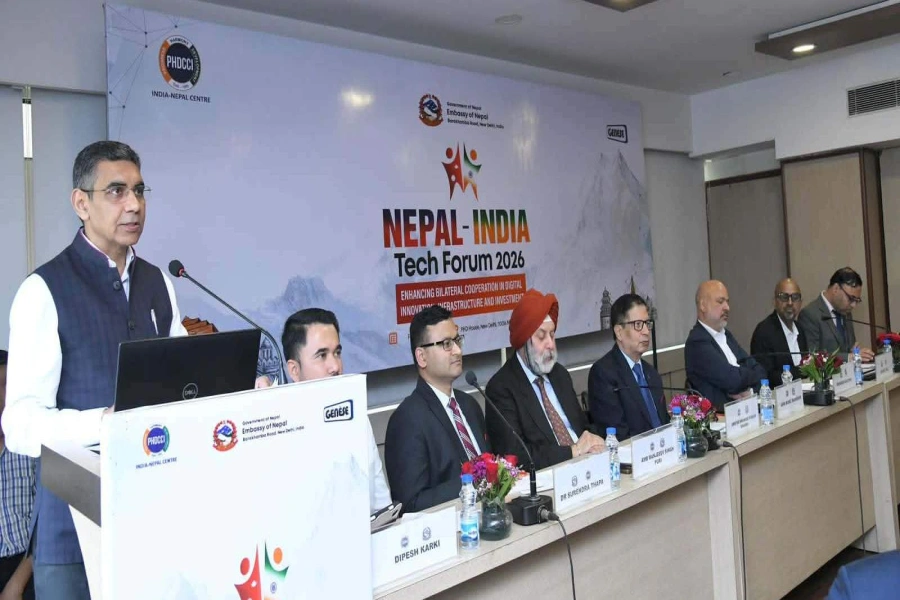KATHMANDU, Dec 22: The Indian company awarded the tender to print banknotes of Rs 1000 denomination with security threads has not yet delivered the notes. Nepal Rastra Bank (NRB) granted approval to Security Printing & Minting Corporation of India Ltd in November 2022 to print Rs 1000 banknotes worth Rs 430 million. However, the company, approved to print a total of US $11.13 million (approximately Rs 1.47 billion), has not submitted a single banknote as per the agreement.
Sources suggest that the company, despite winning the tender at a low price of Rs 3.42 per banknote, faced delays in printing due to the low quality of the samples. Although the first lot was supposed to be printed and submitted within 270 days, not a single lot has been delivered so far, causing a shortage of Rs 1000 banknotes in the market.
NRB prints banknotes every three years based on demand. Recently, the printing of banknotes with security threads commenced for the first time since the fiscal year 2077 BS. Dilli Ram Pokharel, deputy spokesperson of NRB, said a decrease in fake notes in the market with the introduction of Rs 310 million worth of Rs 1000 banknotes featuring security features. He said that the process of printing Rs 1000 banknotes with security threads, given to the Indian company, was lengthy and time-consuming.
Pappu Construction fails to build bridge, govt breaks contract

Pokharel stated, “The process of inviting tenders at the international level is long. The printed note is verified, and it will be rejected if its quality is compromised.” He said that verification only occurs if all standards and quality criteria are met, after which the printing process begins.
The agreed timeline for delivery by the Indian company was 270 days for the first lot, 350 to 450 days for the second lot to be delivered to Kolkata Port, and 550-650 days for the third lot. The fourth lot is expected to be delivered within 720-810 days after completing the printing process.
Regarding the strengthening of security features in Rs 1000 banknotes, Pokharel added that technology has become more user-friendly, allowing people to identify fake and genuine notes with the naked eye.
NRB is also considering the printing of Rs 20 coins, as coins generally have a longer lifespan than banknotes. Pokharel mentioned, “The printing of Rs 5 coins has progressed, and discussions on Rs 20 coins are underway.”
The Currency Management Department of NRB has updated the master plan for note printing and coin minting in accordance with the provisions of the Public Procurement Act, 2063, and NRB Guidelines for Note Printing and Coin Minting, 2065-First Amendment, 2075. The incorporation of enhanced security measures aligns Nepali notes with international standards. In the current note printing cycle, agreements have been reached to print Rs 20 notes, with Rs 50 and Rs 1000 banknotes also in the pipeline.
For the fiscal year 2022/23, Rs 78 million worth of Rs 5 notes, Rs 130 million of Rs 10 banknotes, and Rs 60 million of Rs 500 banknotes have been deposited in the bank's vault. As of the end of the fiscal year 2023, there is a stock of new notes worth Rs. 216.54 billion, slightly lower than the previous year's balance of Rs 227.8 billion.






































